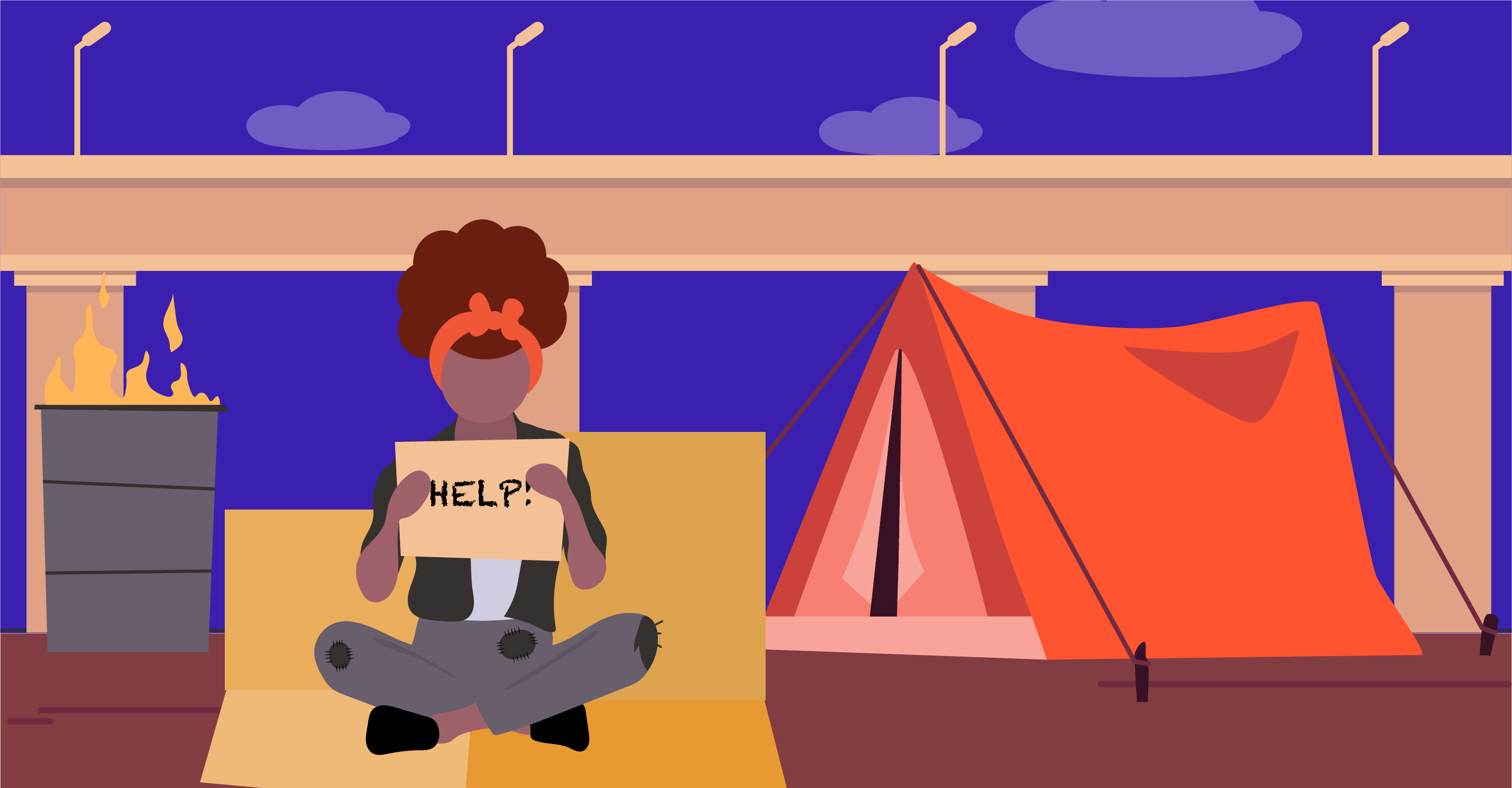This is the weekly column written by Blavity:Politics Senior Editor Kandist Mallett.
Across the street from City Hall beneath the skyline of downtown Los Angeles are homes made from tents and people sleeping on the streets with nothing but a blanket to separate their bodies from the cold concrete. Homelessness has existed in what is now known as Los Angeles since the Tongva people were colonized and displaced as a result of Spanish rule. However, what’s happening now in the city where I was born and raised is a crisis of epidemic proportions.
According to a 2018 Los Angeles Times
article, the city of Los Angeles and the majority of the county saw a 75 percent surge of homelessness over a six-year span. In a city that reportedly will pay $6.9 billion to fund the 2028 Summer Olympics, there is clearly a loss of heart in the city of angels.
While the organizing committee that is planning the Olympics has said it will be profitable, there are organizations in Los Angeles that fear that the games will only further displace poor people in the years leading up to the event.
“Me and the Olympics already aren’t very good friends — and now Garcetti wants to put this sporting event above homeless people? Is his plan the real-life Hunger Games? I can see the chariots circling a soup line,” said Mike “Mudd” Thorpe, a local homeless resident of Los Angeles who is also reportedly the descendant of the first Native American to win an Olympic gold medal, in a blog for No Olympics LA, an organization that’s attempting to stop the Olympics from occurring in Los Angeles. Thorpe also discussed how the Clean Streets LA initiative, which ultimately destroys the homes of houseless people, will likely only increase as the international athletic event draws even closer.
Homelessness is just one visible form of how much wealth inequality has impacted cities like Los Angeles, but it’s an issue that isn’t exclusive to Los Angeles. According to a report from Housing and Urban Development (HUD), around 553,000 people were counted to be homeless through their 2018 Point-in-Time (PIT) count and Housing Inventory Count (HIC). HUD conducts the only nationwide survey of homelessness for our country, but these numbers may not be a full representation of the number of people who are homeless in the U.S.
“We know there’s an epidemic, right? You would have to be blind to not understand the nature of the epidemic…but HUD defines homelessness as people who are literally homeless. People who are in a motel for that night or couch surfing for that night, under the HUD definitions, they are not considered homeless,” Margaret Lin, executive director of the Dellums Institute for Social Justice, said in an interview with CityLab.
How can the government adequately know what the homeless situation is if the definition of the term has been so narrowly defined? A first step toward truly addressing the housing crisis nationally must be to redefine what it means for someone to be homeless — living in conditions that underserve a quality of life for individuals or households. In order to achieve this, it requires having someone in charge of HUD, who is invested in making sure that every individual has a safe and liveable place to call home.
Current Director of HUD Ben Carson issued $2 billion in federal funds to address homelessness. According to a HUD press release, the grants will “renew funding to thousands of local homeless assistance programs nationwide. Combined, this funding represents a record investment to support state and local efforts to reduce and end homelessness.”
Carson has also pushed for the Making Affordable Housing Work Act of 2018, which would have decreased housing subsidies and required those living in federally housing to prove that they are working. Additionally, there were reportedly plans to evict undocumented people from public housing, which would have an impact on roughly 32,000 households who are headed by someone who is undocumented, according to HUD. That means roughly 32,000 households would end up homeless if HUD follows through with this threat. Therefore it’s imperative that we hear more from the 2020 presidential candidates about their cabinet decisions before they are voted into office.
Whoever is elected for president needs to take into account the overall housing crisis, as well as income and racial inequality. Black people, despite being only 13 percent of the overall population, make up about 40 percent of the homeless population. When presidential candidates discuss reparations, this is a figure that must be included in the conversation.
Housing should be considered a basic, fundamental human right. With all the wealth the U.S. has, there is no reason why anyone who wants a home should be denied one. The last thing the country needs is more temporary housing; what it actually needs is more affordable housing and livable wages. A true reflection of a country is the condition of their poorest people — and right now America’s reflection is looking pretty ugly.
Like this content? Now, check these out:
Pay What You Owe: Why The Bill For Reparations Is Past Due And Requires A Real Plan
The Harmful Effects Of Gentrification On NYC’s Low-Income Black And Latino Populations
Forever We Love Atlanta, But When Will We Truly Begin To Tackle Its Rising Issue Of Homelessness?
